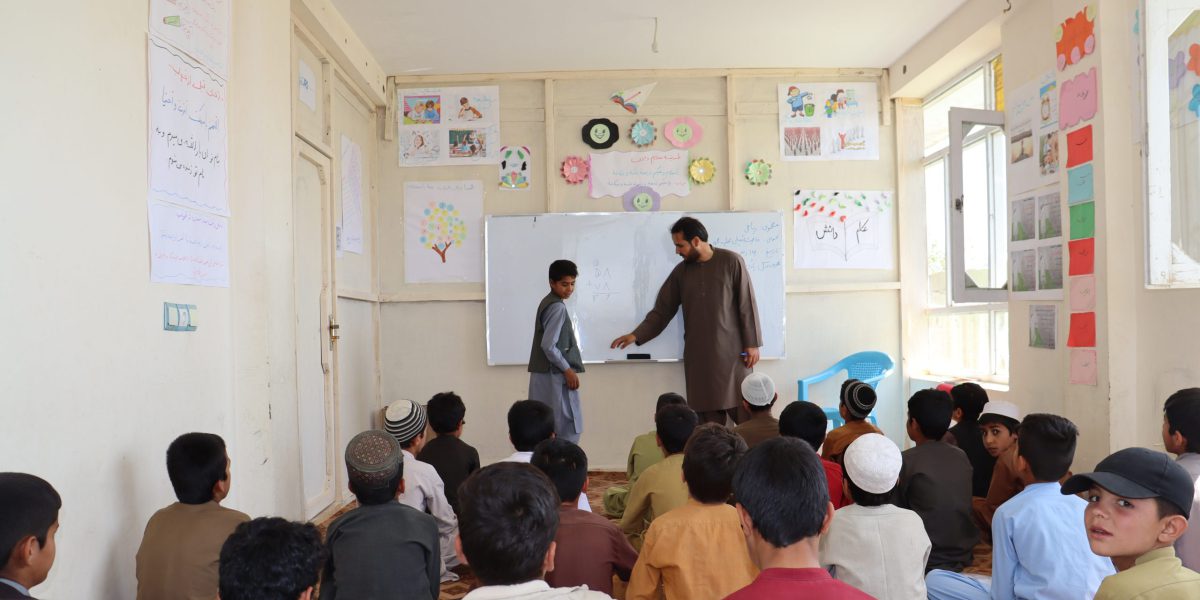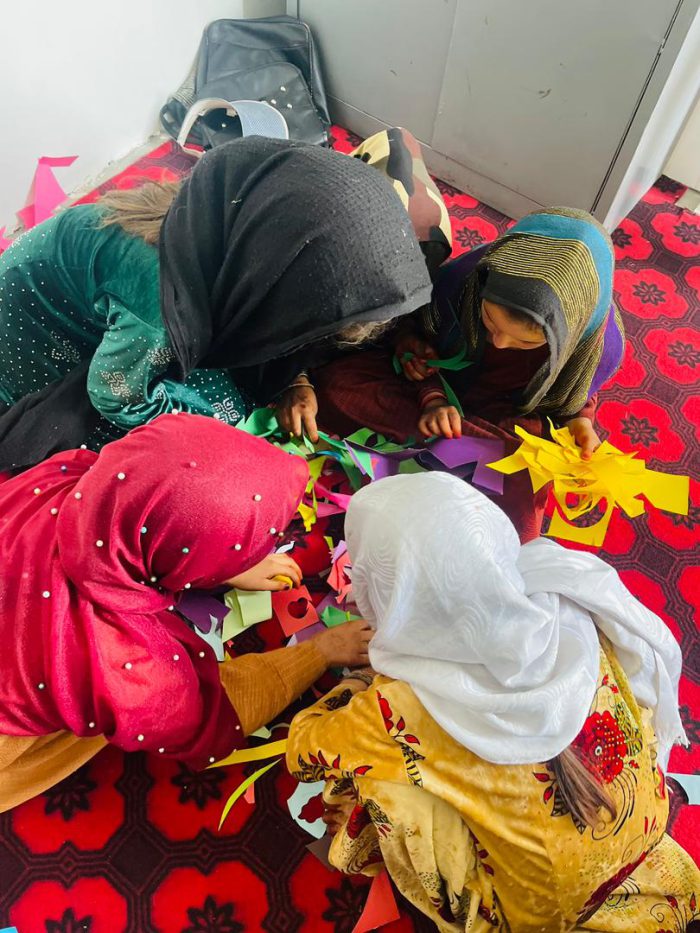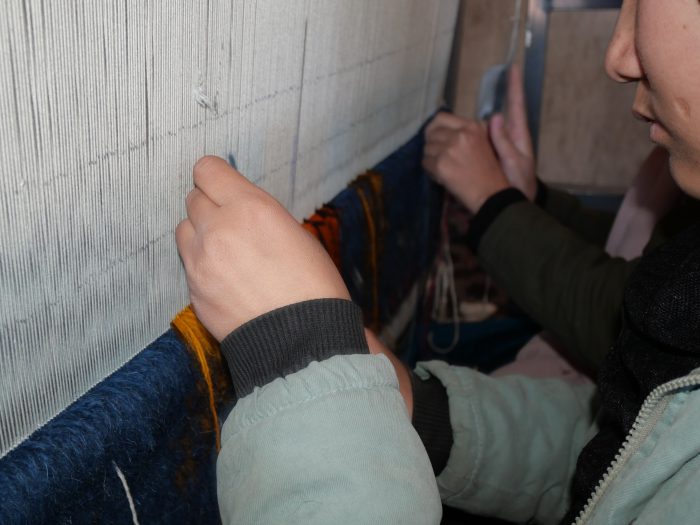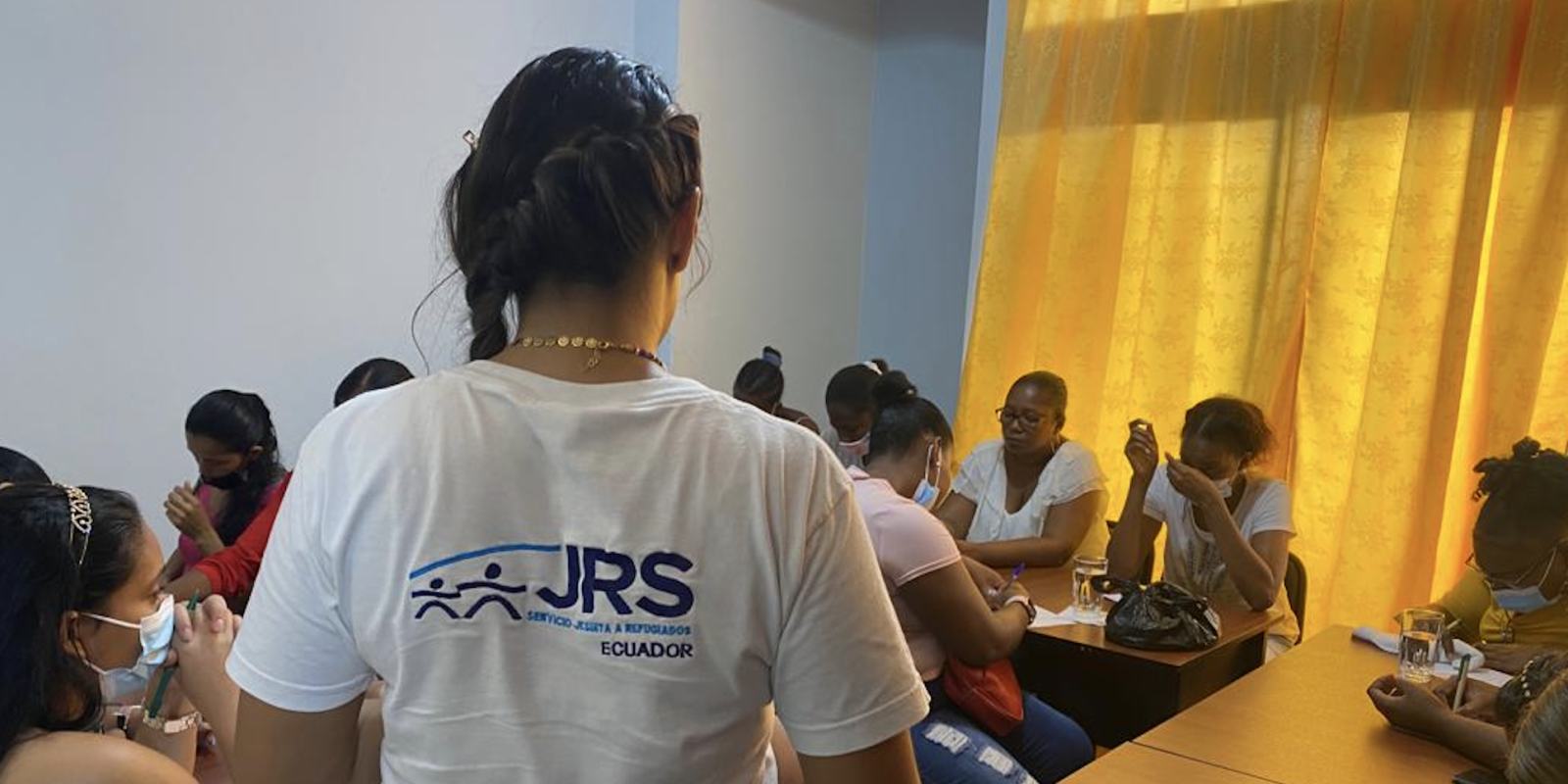JRS Supporting Returnees and Internally Displaced People in Afghanistan
16 May 2024|Chloe Gunther

More than 8.2 million people in Afghanistan have fled their homes in one of the world’s most severe and protracted situations of displacement.
Those fleeing have mostly sought refuge in Pakistan and Iran, but a significant increase in deportations from both have left hundreds of thousands of Afghan returnees and internally displaced people (IDP’s) in extreme danger.
 Between October and December of 2023 alone, at least half a million people were forced to return to Afghanistan, despite the worsening humanitarian situation there. Afghans face multi-faceted challenges including conflict and violence, humanitarian violations in the form of Defacto Authorities-imposed restrictions, droughts, severe economic strife, and food insecurity.
Between October and December of 2023 alone, at least half a million people were forced to return to Afghanistan, despite the worsening humanitarian situation there. Afghans face multi-faceted challenges including conflict and violence, humanitarian violations in the form of Defacto Authorities-imposed restrictions, droughts, severe economic strife, and food insecurity.
JRS Afghanistan accompanies thousands of these individuals amidst these challenges. Herat, a city in northwest Afghanistan, hosts one of the highest numbers of returnees and IDP’s. There, JRS has implemented educational programs, mental health and psychosocial support (MHPSS), and community empowerment activities for both youth and adults.
Over 2,300 people have participated in JRS Afghanistan’s programming that is funded, in part, by generous supporters of JRS/USA. The four-pronged program consists of youth empowerment courses, community learning and recreational activities, strategies to improve social cohesion, and MHPSS programs.
In Afghanistan’s dire situation, youth face some of the most severe, long-term consequences as they stand at the intersection between malnutrition, violence, and lack of access to education.
From the start, JRS identified the need for specific programming aimed at improving youth confidence and self-esteem. This is accomplished through skills training, volunteering opportunities, and safe spaces to foster community development.
“Our lives have taken a positive turn at the JRS Community Development Center,” said Zahra*, a young girl who, with her 11 siblings, has participated in the JRS Youth Program. “We no longer focus on our problems, instead we focus on activities like games, drawing, and storytelling sessions that give me hope for a brighter future.”
In a city where cultural differences can cause tension, the Community Development  Center hosts a variety of activities for youth to have fun and play with one another irrespective of their backgrounds. These activities provide a space for youth to build social cohesion and understanding and relieve stress induced by the challenges of displacement.
Center hosts a variety of activities for youth to have fun and play with one another irrespective of their backgrounds. These activities provide a space for youth to build social cohesion and understanding and relieve stress induced by the challenges of displacement.
MHPSS is integrated into all JRS programming as we understand the importance of mental health in helping returnees and IDP’s rebuild their lives. Fatima*, another young girl who participates in activities at the Community Development Center, reflected on her experiences with anxiety and depression.
“Although a bright student in my class, I lost interest in everything and locked myself in my house,” she said, explaining how losing her father in an explosion and the concern she has for her mother and siblings infringes on her ability to cope. “The friendly approach of the JRS social worker helped me overcome the negativity in my life.”
The approach is holistic. The JRS team has built internal processes to maintain staff well-being and retention. This has empowered the community to get more involved with JRS activities, and several staff members have become mentors for youth in the programs.
“Although the economic tensions continue to remain, we all enjoy our life with one another. I express my gratitude to JRS for having transformed our family through art and play activities, providing us a world of play, learning, and laughter,” Zahra said.
As the situation in the Middle East continues to threaten the lives of displaced people, consider supporting JRS programs today so youth like Zahra and Fatima have every opportunity to thrive.
*Name changed to protect safety and anonymity



